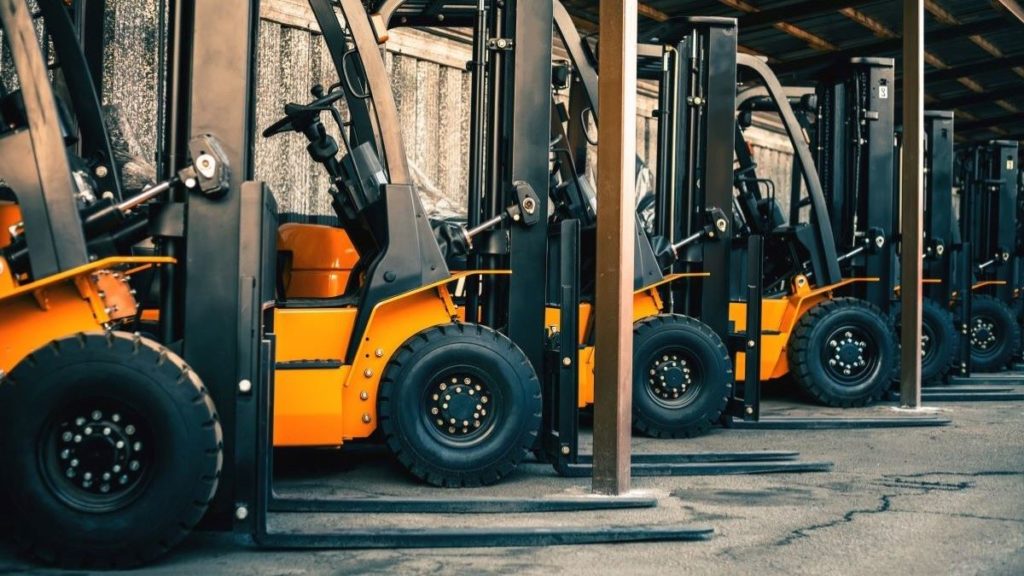Featured image by Pavel Ilyukhin
If your business needs equipment, you may have the option to buy or lease. Leasing has many advantages, but it’s not the right move for every business or every purchase. How are you supposed to tell whether it’s better to buy or lease?
Buying vs. Leasing: The Basics
First, let’s explain some of the basics. Buying is the act of purchasing a piece of equipment outright; you pay the full price immediately, with cash or by borrowing money. From this point forward, you own this piece of equipment and can use it however you see fit.
In a lease, you don’t actually own the equipment, nor do you pay for it outright. Instead, you usually pay some upfront cost, then make monthly payments to fulfill the lease agreement. The owner of the equipment retains ownership, and in some cases is responsible for its upkeep. In return, you may use the equipment as outlined in the agreement.
Let’s say your business requires the use of commercial vehicles to operate. You could purchase each vehicle to retain ownership, but there are a couple of problems—you may not have the cash to fund this purchase, and you may hate the idea of maintaining the vehicles yourself. If this is the case, you can lease your commercial vehicles instead.
RELATED ARTICLE: WORK AT HOME: SHOULD YOU BUY OR RENT?
People often choose buying when they have plenty of cash, when they want to retain full control over their purchase, or when they’re interested in reselling in the future. People choose leasing when they don’t have much cash, when they want to take advantage of minimal upkeep requirements, or when they aren’t sure about their long-term prospects.
Important Variables to Consider
Before you make the decision to buy or lease, there are a number of variables you’ll need to consider, including:
The Equipment You’re Purchasing
First, you’ll need to think about the specific type of equipment you’re going to purchase. Leasing is better for some types of equipment than others. For example, is this the type of equipment that wears out quickly and suffers from depreciation? Is this something that could be valuable to resell in the near future? Is this something your business will be using for decades to come?
Cash on Hand for Leasing or Buying
Next, think about how much cash you have on hand—and how strong of a financial position your company is in. The more cash you have, the easier it is to buy equipment instead of leasing it. If your company is struggling financially, leasing may be the more viable option.
Your Long-Term Plans
Think about your long-term plans for this equipment. What do you hope to do with it and how long will you need it? If you know you’re going to need this equipment for 10 years or more, it’s probably worth buying. If you know you’re only going to need it for a year, leasing may be better. And if you’re not sure how long you’re going to need it, leasing is almost certainly better, since it affords you more flexibility.
Desire for Control
Some lease agreements, including those for commercial vehicles, have caveats and restrictions that limit what you can do for the equipment in question. For example, you may be limited on the number of miles you can drive. Accordingly, you’ll need to ask yourself how much control you want to maintain; the more control and autonomy you want, the more you should lean toward buying.
Desire for Resale
Remember, leasing means you’re never going to actually own the equipment in question. That means you won’t be able to resell it in the future (though you may be able to break the lease early). If you want to resell the vehicle and recoup your costs, you’ll need to buy rather than lease.
Willingness to Maintain
How much time, money, and effort are you willing to spend maintaining the equipment yourself? Depending on the lease agreement, you may not be responsible for any maintenance while you’re under the lease. This could be a massive convenience for you.
RELATED ARTICLE: THE COSTS OF FAILING TO MAINTAIN IMPORTANT MACHINERY
The Specifics of the Lease Agreement
Finally, think about the specific terms and conditions of the lease agreement. Not all leases are created equal. Some will be more restrictive. Others will be less expensive. Some will require longer durations. If you’re reviewing lease agreements, remember that you can negotiate many of these details as well.
Is Leasing Better for You? Only You Can Decide
It’s hard to make a definitive statement that buying is better than leasing, or vice versa, even when presented with all the variables. The truth is, there’s a gray area where the advantages and disadvantages functionally cancel each other out. It’s up to you to set your business’s priorities and decide which is better for your needs.
RELATED ARTICLE: 3 TIPS FOR SAVING MONEY WHEN FINANCING COMMERCIAL EQUIPMENT


